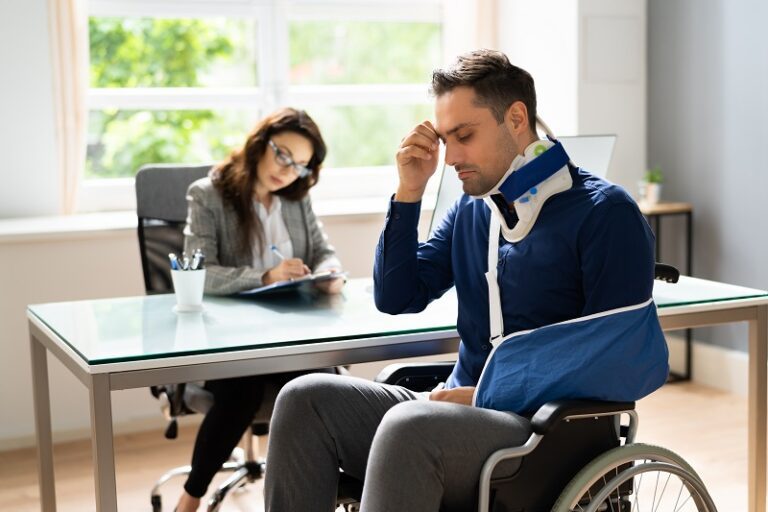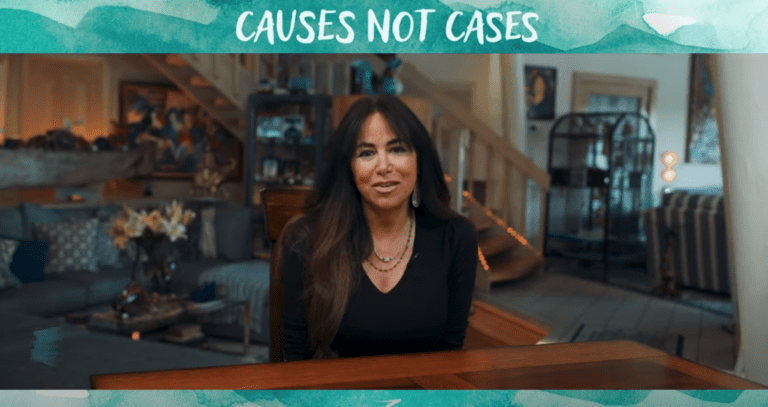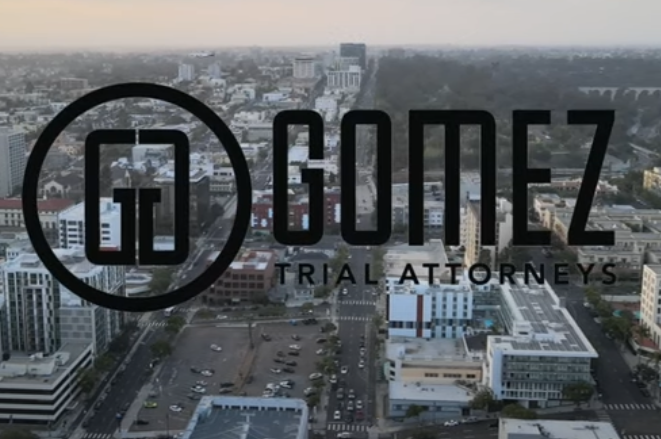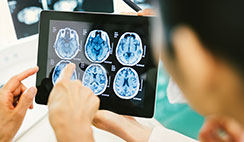 In the United States, the number of motorcycle accident fatalities and injuries have shown a slight decrease in specific years. However, this group of travelers remains around twenty-eight times more likely than passengers of other motor vehicles to be killed in an accident. The most common fatal injury to be suffered by motorcycle riders and their passengers is a traumatic brain injury (“TBI”). Motor vehicle accidents, including those involving motorcycles, are one of the most common causes of traumatic brain injuries.
In the United States, the number of motorcycle accident fatalities and injuries have shown a slight decrease in specific years. However, this group of travelers remains around twenty-eight times more likely than passengers of other motor vehicles to be killed in an accident. The most common fatal injury to be suffered by motorcycle riders and their passengers is a traumatic brain injury (“TBI”). Motor vehicle accidents, including those involving motorcycles, are one of the most common causes of traumatic brain injuries.
Motorcyclists who are not wearing a helmet at the time of an accident have a significantly increased risk of sustaining a traumatic brain injury. The National Highway Traffic Safety Administration (NHTSA) reports that helmets contribute to saving the lives of 1,800 riders per year. Nearly 750 fatalities could have been prevented if riders had been wearing a helmet. If you or your loved one has suffered a brain injury in a motorcycle accident caused by another’s carelessness, you may seek compensation.
Read on for information about the impacts and expenses you may incur as the result of a motorcycle accident injury, and for an explanation of the motorcycle accident claims process. Experienced brain injury attorneys regularly fight for the rights of injured victims who suffer from traumatic brain injuries. Contact a motorcycle accident lawyer today if you need help with your claim.
[lwptoc]
The Body’s Most Vital Organ
The brain controls all of the body’s voluntary and involuntary responses, making it an essential organ for functioning and survival. However, despite the brain’s important role, it only has a limited ability to heal itself after sustaining trauma. Unfortunately, the consequences of head and brain injuries are often permanent. Because there are several different lobes of the brain, each of which controls specific bodily functions, every brain injury is unique. However, depending on the injured area of the brain, and even the side of the brain that suffered damage, victims may experience some common symptoms.
For example:
- Frontal lobe injuries typically cause injured victims difficulty in controlling their impulses, emotions, and behaviors. A frontal lobe injury may result in difficulty speaking and memory deterioration, the latter of which is demonstrated by an inability to recall recent and past events. As its name suggests, the frontal lobe is located in the front part of the brain, and is responsible for functioning related to language expression or speaking; organization; memory; problem-solving; planning; and judgment.
- Injuries to the temporal lobe commonly cause difficulties with communication and memory. The temporal lobe is located beneath the temples, and is responsible for functions related to receptive language or understanding spoken language; memory; sequencing; hearing; and organization.
- Injuries to the cerebellum will likely cause victims to struggle with maintaining balance and limitations to coordinated movements. The cerebellum is located towards the bottom of the brain and sits just above the brainstem. The cerebellum controls balance, coordination, skilled motor activity, and visual perception.
- Occipital lobe injuries may result in blindness or the inability to observe and perceive the size and shape of objects. The occipital lobe is located in the back of the brain and primarily controls visual functioning.
- Injuries to the parietal lobe often cause a decline in the functioning of the body’s five primary senses—sight, smell, sound, taste, and touch. The parietal lobe is located at the top of the brain and controls an individual’s functions related to the sense of touch, depth perception, visual perception, and the ability to identify sizes, shapes, and colors.
- An injury to an individual’s brainstem most commonly results in a fatality, as the body cannot independently survive without the essential bodily responses that are controlled by the brain stem. The brainstem is located at the base of the skull, and is responsible for all of the body’s involuntary responses, including breathing, consciousness, and heart rate.
The brain is divided into two hemispheres, the left hemisphere and the right hemisphere, each of which carry out distinct functions.
In evaluating the losses experienced as the result of a traumatic brain injury, it is important to identify which side of the brain sustained damage.
- The right side of the brain controls creativity, imagination, conceptual thinking, and physical movement of the left side of the body. An injury to the right side of the brain may cause victims to suffer from visual memory deficits, altered creativity and perception of music, the loss of “big picture” thinking, and limited mobility and control of the left side of the body.
- The left side of the brain controls executive functioning related to analysis, logic, precision, detachment, literal thinking, and physical movement of the right side of the body. Victims who sustain an injury to the right side of their brain may experience limited mobility of the right side of the body, difficulties speaking or understanding spoken language, impaired logic, and problems with sequencing.
Diagnosing a Brain Injury
Brain injuries are diagnosed based on the severity of the injury and may be classified as mild, moderate, or severe. In determining the severity of a traumatic brain injury, physicians rely on an evaluation of victims’ level of cognitive and physical functioning.
Even “mild” traumatic brain injuries can cause short-term memory loss, depression, seizures, and chronic headaches—all of which are far from “mild” symptoms. For example, concussions are commonly characterized as mild traumatic brain injuries. However, the impacts of a concussion can cause long-lasting or permanent disabilities and limitations for injured victims.
Common symptoms of a brain injury may include:
- Spinal fluid, which is a clear, thin liquid, coming from the ears or nose;
- Loss of consciousness;
- Dilated or unequally sized pupils;
- Dizziness;
- Difficulty maintaining balance;
- Difficulty breathing;
- Decreased attention and alertness;
- Weak muscles;
- Poor coordination;
- Low heart rate;
- Headache;
- Confusion;
- Ringing in the ears, which is also known as tinnitus;
- Cognitive decline, including memory issues, poor judgment, inattention, or slowed analysis;
- Difficulty speaking or swallowing; and
- Loss of control of the bowels or bladder.
Following a motorcycle accident involving victims with suspected brain injuries, emergency department physicians will first ensure the individual is stable and can breathe on their own. Immediately after stabilizing a victim’s vitals, medical professionals will begin the daunting task of assessing the severity of their brain injury.
In diagnosing a traumatic brain injury, physicians will take into consideration the period of a victim’s loss of consciousness and may utilize the Glasgow Coma Scale, or similar assessment tool during the evaluation.
The Glasgow Coma Scale is a series of manual tests performed on the individual intended to demonstrate:
- The individual’s level of motor response. A physician may consider whether the patient can respond to voice commands or whether they demonstrate withdrawal when exposed to painful stimuli. Medical professionals may test an individual’s involuntary motor responses to determine whether any level of functioning of their motor responses.
- The person’s ability to open his or her eyes. Medical professionals will command patients to open their eyes if they determine whether the eyes are responding normally, including whether a patient’s eyes respond to voice commands or exposure to pain.
- The person’s ability to verbally communicate with others. Assessments will determine the level of a patient’s verbal communication skills, observing whether verbal communication is normal, disoriented, or incomprehensible.
Medical professionals may also use neuroimaging to take a series of images of an injured victim’s brain. Although damage to the brain can be particularly difficult to detect visually, neuroimaging may reveal bleeding or swelling in the brain, bruised brain tissue, and other damage. Concussions and other “mild” traumatic brain injuries may be characterized by only a brief period of loss of consciousness with symptoms limited to vomiting, lethargy, and memory loss.
Individuals who are unconscious for between 30 minutes and 24 hours and show indications of brain trauma on neuroimaging tests, will likely be diagnosed with a moderate traumatic brain injury. Individuals who are unconscious for more than 24 hours and also show signs of damage to the brain in neuroimaging tests, will likely be diagnosed with a severe traumatic brain injury.
Medical professionals consider individuals who lose consciousness for extended periods of time to be in a coma. These individuals do not experience sleep or wake cycles while unconscious.
Treating the Injury
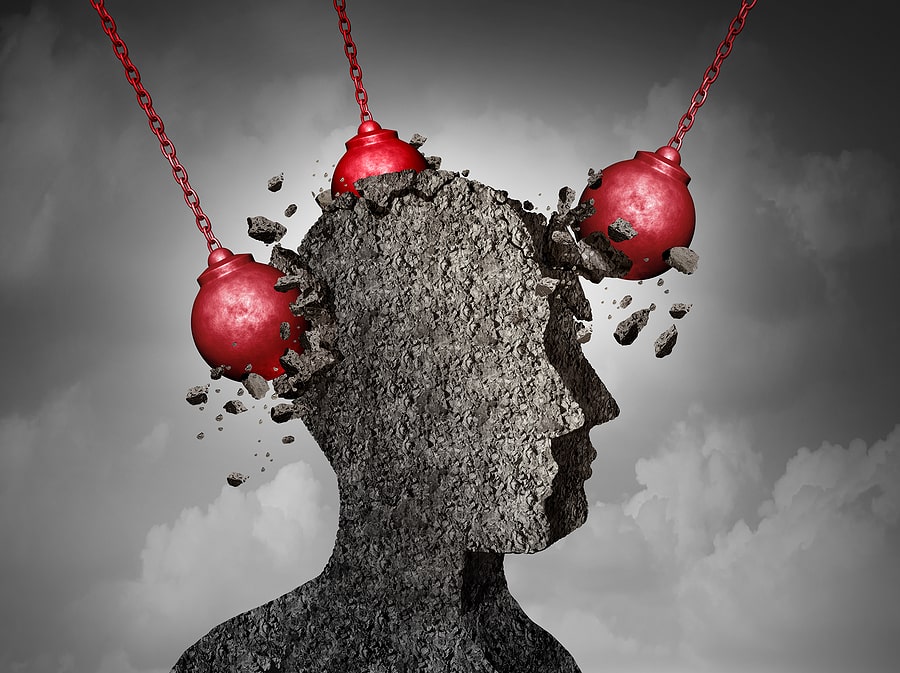 Traumatic brain injury victims are at a high risk for complications throughout their treatment of recovery. Addressing these complications before they cause additional damage to the brain is a critical component of early treatment for traumatic brain injuries resulting from motorcycle accidents. Early treatment is often akin to a juggling act, as individuals suffering from TBIs often sustain other severe injuries that also require attention, monitoring, and treatment.
Traumatic brain injury victims are at a high risk for complications throughout their treatment of recovery. Addressing these complications before they cause additional damage to the brain is a critical component of early treatment for traumatic brain injuries resulting from motorcycle accidents. Early treatment is often akin to a juggling act, as individuals suffering from TBIs often sustain other severe injuries that also require attention, monitoring, and treatment.
Treatment of a moderate or severe brain injury is typically divided into two categories:
- Acute treatment addresses immediate complications to save the injured victim’s life. Acute care for a brain injury begins at the scene of a motorcycle accident and continues throughout the patient’s stay in the emergency department or intensive care unit. Depending on the severity of the injury, victims may begin rehabilitation therapies intended to promote recovery to allow for the victim’s release from the hospital. Some individuals may be released to their homes to continue treatment through at-home assistive care, while more severe brain injuries may require victims to first transition to a long-term care facility before being allowed to return home.
- Post-acute treatment includes all treatment and therapies performed after a traumatic brain injury patient has been stabilized. Post-acute treatment often begins with rehabilitation efforts in the hospital, and continues as the patient progresses from the hospital to a long-term care facility or their home to complete outpatient treatment.
Common Complications Associated With Brain Injuries
While moderate to severe traumatic brain injuries frequently result in permanent damage to the brain, it is also likely that victims will experience further complications.
Some of the complications that are frequently experienced by individuals who have suffered a brain injury from a motorcycle accident include:
- Altered consciousness. As mentioned, a loss of consciousness that persists for more than twenty-four hours is classified as a coma. For some individuals who experience a coma, their extended loss of consciousness may be permanent. Long-term consciousness disorders caused by traumatic brain injuries may induce victims into a vegetative state characterized by minimal brain functioning. Victims may open their eyes or make sounds, but, generally, comatose individuals are completely unaware of their surroundings. In a minimally conscious state, victims may exhibit small, but distinct indications of self-awareness or awareness of their environment. The presence of such indications may suggest an individual’s ability to transition between a vegetative state and a higher level of consciousness. In the absence of any indication of higher cognitive functioning, individuals may be diagnosed with brain death. Brain death is classified by no measurable activity in the brain or brainstem. Individuals who have been diagnosed as “brain dead” have suffered irreversible damage from which they cannot recover.
- Seizures. Victims of traumatic brain injury commonly experience seizures in the hours or days immediately following a motorcycle accident. Many injured victims will be prescribed anti-seizure medication as part of their acute treatment plan to prevent further complications and brain damage that may be caused by seizures. However, for some individuals, seizures may not occur for months or even years after an accident. Recurring seizures resulting from a traumatic brain injury is a condition known as post-traumatic epilepsy.
- Hydrocephalus. Victims of traumatic brain injury can experience hydrocephalus, which is a condition characterized by the buildup of cerebrospinal fluid on the brain. This condition can cause increased pressure on the brain and may cause further damage. Often, hydrocephalus is treated by implanting a shunt into the brain tissue to drain the excess fluid from the brain to other parts of the body.
- Infections. Infections are particularly common among victims who sustain open head injuries from an object penetrating the skull and exposing brain tissue. Penetration of the skull is especially dangerous as it allows bacteria to infiltrate the meninges, which are the outer protective tissues surrounding the brain. Infections can also occur in other parts of the body as a result of other accident-related injuries, including urinary tract infections resulting from a loss of bladder control related to traumatic brain injury.
- Blood vessel damage. When a brain injury occurs, the blood vessels responsible for delivering blood and oxygen to the brain are often also damaged. Due to the lack of oxygen and blood making its way to the brain, damaged blood vessels may cause victims to experience a stroke, or other life-threatening conditions.
- Headaches. Victims of traumatic brain injury commonly experience severe headaches after a motorcycle accident, even if the doctors classify the injury as “mild.” For some victims, severe headaches may become a chronic or permanent condition.
- Heterotopic ossification. Although not completely understood by medical professionals, heterotopic ossification refers to the brain’s tendency to develop new bone material in areas where bone does not belong. For example, some victims experience new bone growth in their hip or shoulder joints. Unnecessary bone development may lead to inflammation and pain or a loss of range of motion in the affected area. Doctors normally address heterotopic ossification through surgical removal of the new bone material.
Brain Injuries Impact Your Entire Life
Brain injuries are among the most serious and severe injuries an individual can experience. Specifically, they are serious because of the permanent and profound impacts that traumatic brain injuries have on victims’ lives. The lifetime costs of medical treatment for a traumatic brain injury, alone, are between $85,000 to $3 million.
In addition to the significant medical expenses, the complications associated with traumatic brain injuries can be extensive, leaving individuals with permanent disabilities and limitations that may prevent them from ever returning to work. Those who make some progress through recovery may return to work, although likely not in the same capacity as before the accident.
It is not surprising that roughly half of the homeless population in the United States suffers from traumatic brain injury. In many cases, a brain injury itself is the catalyst for homelessness.
Brain injuries can impact nearly every aspect of victims’ and their families’ lives.
Some areas that are commonly affected include:
- Homelife: When a traumatic brain injury victim is released from the hospital to return home, his or her family members often find that their relationship with the victim has completely changed. Spouses and children are frequently required to provide extensive care for their injured loved one. Spouses may experience a loss of physical intimacy or companionship due to changes in a victim’s sexual desires and performance, which are common consequences caused by hormonal changes associated with TBIs. Families will typically endure extreme financial strain as they cope with mounting medical bills and the loss of the injured person’s financial contribution.
- Work-life: For the average adult with a brain injury, the unemployment rate is around sixty percent—far above the unemployment rate for the general population—within two years after an accident. Brain injuries often cause extreme fatigue for months or even years after the injury is sustained. Commonly, injured victims who return to work require workplace accommodations to address the lasting consequences of a traumatic brain injury. For example, recovering individuals may need longer breaks, fewer workdays, shorter workdays, and lighter workloads.
- Social life: Victims of traumatic brain injuries often find that they no longer have much in common with friends they considered close before their injury. Difficulties with coordinated movement may prevent injured individuals from participating in hobbies or activities that they previously enjoyed. Behavioral and/or impulse control issues caused by brain injuries may prevent victims from engaging in events with friends.
Seeking Compensation After a Motorcycle Accident
If you or your loved one suffered a brain injury in a motorcycle accident caused by another’s careless or reckless actions, you may be entitled to seek compensation for any accident-related damages. Injured victims are permitted to file a motorcycle accident claim in the civil court system. For a claim to be successful, victims must show that the responsible party is legally liable for their injuries.
To do so, victims must prove the following elements:
- The at-fault party owed you a duty of care. The duty of care afforded to an individual will depend on the circumstances of the accident and the at-fault party’s role in causing the accident to occur. If, for example, a negligent driver caused your motorcycle accident, the driver owed you a duty of care to safely and legally operate their motor vehicle on the roadways.
- There was a breach in the duty of care. You must demonstrate the breach of the duty of care may the at-fault party owed to you. So, if the at-fault party was a negligent driver, then the breach in the duty of care may be impaired driving, speeding, or making a left-hand turn into your path.
- Causation. The breach of the duty of care must cause the accident that resulted in your brain injury.
In addition to proving liability, a motorcycle accident lawsuit also requires victims to prove the amount of damages they have incurred as a result of the accident. California law permits injured victims to seek compensation for both economic and non-economic damages related to a motorcycle accident.
Economic damages are tangible, out-of-pocket expenses you incurred as a result of accident injuries:
- Medical expenses, including emergency treatment at the scene of a motorcycle accident or in the emergency department; diagnostic testing; physician and surgical services; hospitalizations; physical therapy; and rehabilitation. Expenses related to home modifications and assistive devices, such as wheelchairs and crutches, that are necessary to accommodate limitations caused by traumatic brain injuries may be included.
- Lost wages incurred from a victim’s inability to return to work or missed work due to participation in treatment or rehabilitation may be compensated.
- Loss of future earning capacity if a brain injury causes permanent disabilities that prevent victims from ever returning to work in the same capacity as before the accident.
- The cost of repairing or replacing your motorcycle and gear that was damaged in the accident.
Non-economic damages provide compensation for the intangible impacts that the accident has on victims’ lives.
Some examples of non-economic damages that may be recoverable in a motorcycle accident claim include:
- Physical pain and suffering;
- Emotional distress;
- Loss of the enjoyment of life; and
- Loss of consortium.
In some particularly egregious cases, injured victims may seek punitive damages. Punitive damages do not operate to reimburse victims for the accident-related losses they have suffered. Rather, punitive damages act as a form of punishment intended to deter similarly egregious behavior in the future. In California, courts only award punitive damages when injured victims can prove that the responsible party intentionally caused them harm or willfully disregarded their safety.
Frequently Asked Questions About Motorcycle Accidents and Brain Injuries
The complexity of individual brain injuries may leave victims and their families with unanswered questions. Below are the answers to some of the questions that are most frequently asked by motorcycle accident victims.
I wasn’t wearing a helmet at the time of my accident. Can I still recover damages?
California is one of several states that enacted a universal helmet law. Under a universal helmet law, motorcyclists and passengers must wear a helmet at all times while operating or riding a motorcycle. Nonetheless, injured victims may still pursue compensation for accident-related damages even if they were not wearing a helmet at the time of the accident.
My husband died from a brain injury caused by a motorcycle accident. Can I file a lawsuit?
Yes, surviving family members may recover compensation for their losses by filing a wrongful death suit. Similar to a personal injury claim, a wrongful death lawsuit is a legal claim filed in civil court. Eligible surviving family members, including the victim’s spouse, or domestic partner, and children, may file a wrongful death claim.
Damages that families may be entitled to seek in a wrongful death claim include:
- Medical expenses for the treatment of the decedent’s final injury;
- Funeral, burial, or cremation expenses;
- Wages the decedent would have reasonably earned if he or she had survived the accident;
- Loss of financial support to surviving family members; and
- Loss of companionship, guidance, and protection that was provided to family members by the decedent.
How long do I have to file a claim after a motorcycle accident?
The statute of limitations provides two years of the date of the injury or the victim’s death to file a claim. In some circumstances, an exception may extend the deadline for filing a claim. Speak with an experienced motorcycle accident attorney to determine whether an exception may apply to your accident.
What is the average settlement in a motorcycle accident brain injury case?
Because each case’s value is based on the unique expenses and experiences caused by the injury, there is no average settlement amount.
However, some factors that may impact the value of a claim include:
- The amount of coverage provided by the at-fault party’s insurance policy. While individuals who are injured in an accident caused by an uninsured driver are still entitled to file a motorcycle accident claim, recovering the full value of their claim may be difficult. Uninsured individuals will be held personally liable for compensating accident-damages, and they can’t afford the costs out-of-pocket. Unfortunately, victims may never receive full compensation from uninsured, at-fault parties.
- The weight of liability. If injured victims are partially liable for their injuries, the amount of compensation they are entitled to receive will be reduced.
- Injured victim’s overall health and age at the time of the accident. An individual’s level of progress through their career can dramatically impact the amount of compensation they are eligible to recover to compensate for lost wages and loss of future earning capacity. Additionally, the presence of pre-existing conditions may provide a basis for the at-fault party’s insurance company to argue that the injuries actually caused by the accident are less severe than the claim asserts.
- Victims’ level of patience. Most motorcycle accident cases resolve before they ever reach the courtroom. However, insurance companies will often delay offering a fair settlement amount until it is apparent that the case will proceed to trial. In some cases, an adequate settlement may not come until the trial phase of the claims process is underway. While it is certainly possible to accept a settlement before trial, the amount offered may not be sufficient to fully cover all accident-related expenses.
Is my brain injury settlement taxable?
As explained by the Internal Revenue Service, motorcycle accident settlements are not considered income and therefore, the funds are not taxable. However, there is an exception for an award of punitive damages. Because punitive damages are not directly related to the expenses and losses caused by accident injuries, any sum of punitive damages is considered income and will be subject to taxation. Another exception applies to any deductions injured victims utilized when initially paying their medical expenses. Once you receive your settlement or award, you must return the expenses covered by health insurance deductions.
Let a Motorcycle Accident Lawyer Help You
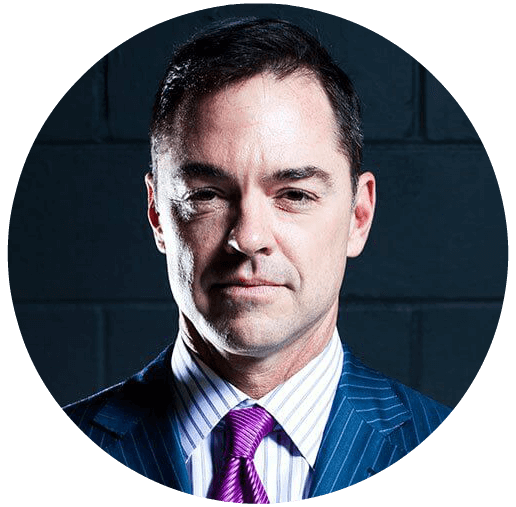
The processes for recovering damages related to a brain injury sustained in a motorcycle accident are complex.
An experienced motorcycle accident lawyer can help you understand and protect your legal rights by providing compassionate legal services, including:
- A valuation of your case based on the expenses you have incurred, those you may incur, and the impacts your injury has had on your life;
- A thorough examination of your case to determine all potentially liable parties and funds for compensating you;
- Timely filing of all court-required paperwork in the proper jurisdiction.
- Collection and organization of evidence and witness testimony;
- Skilled negotiation with the at-fault party’s insurance adjuster and evaluation of the fairness and adequacy of settlement offers;
- Attendance at all pre-trial conferences on your behalf;
- Assistance in understanding the advantages and disadvantages of any offered settlement;
- In lieu of a settlement, your lawyer should prepare to litigate the claim at trial. The trial phase of the claims process may include preparing and delivering opening and closing statements, the examination of witnesses, and the presentation of evidence; and
- Assistance with collecting the settlement or award.
For a free consultation and case evaluation, contact a motorcycle accident lawyer today.
Gomez Trial Attorneys
655 West Broadway, Suite 1700
San Diego, Ca 92101
619-237-3490


